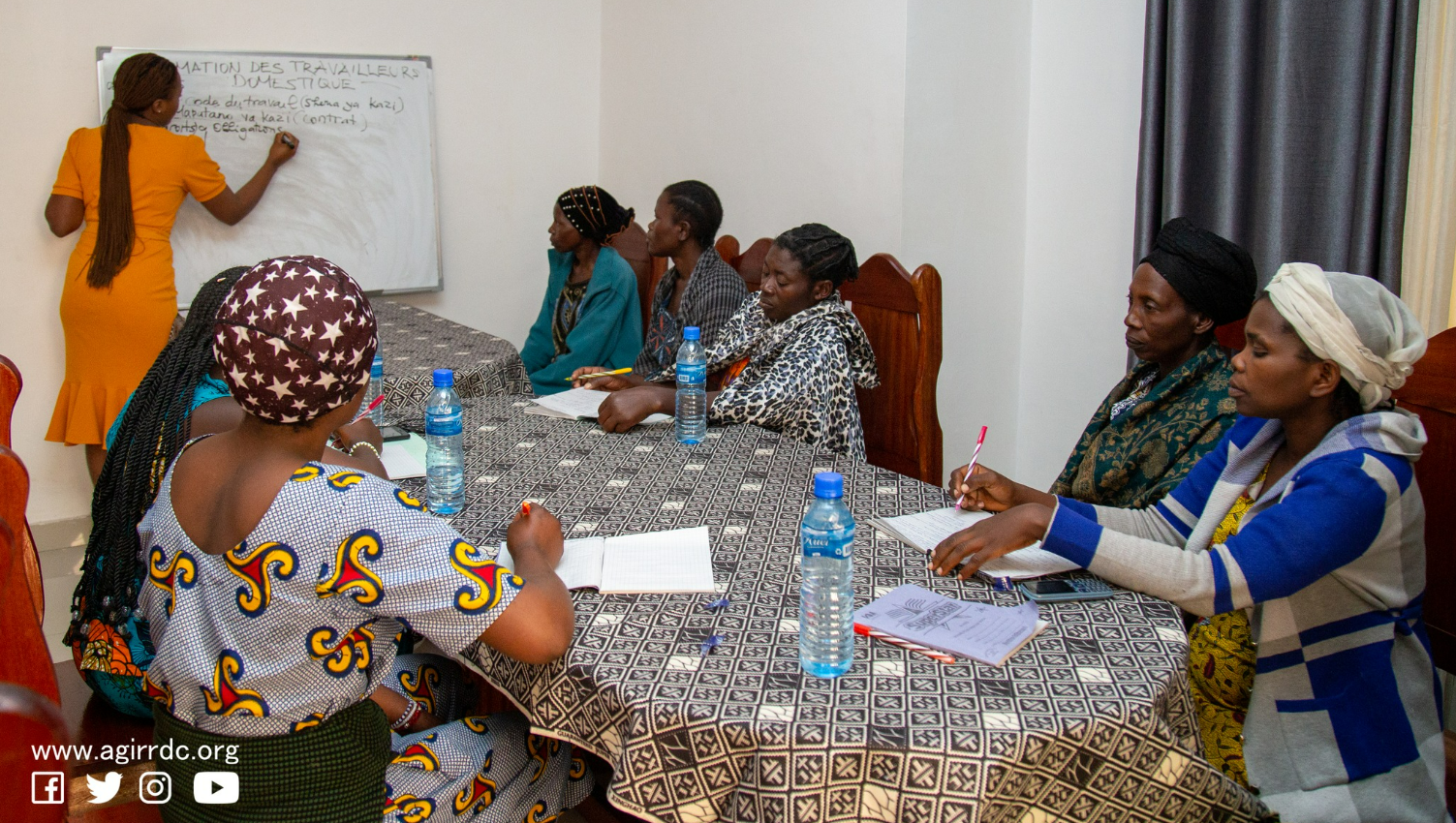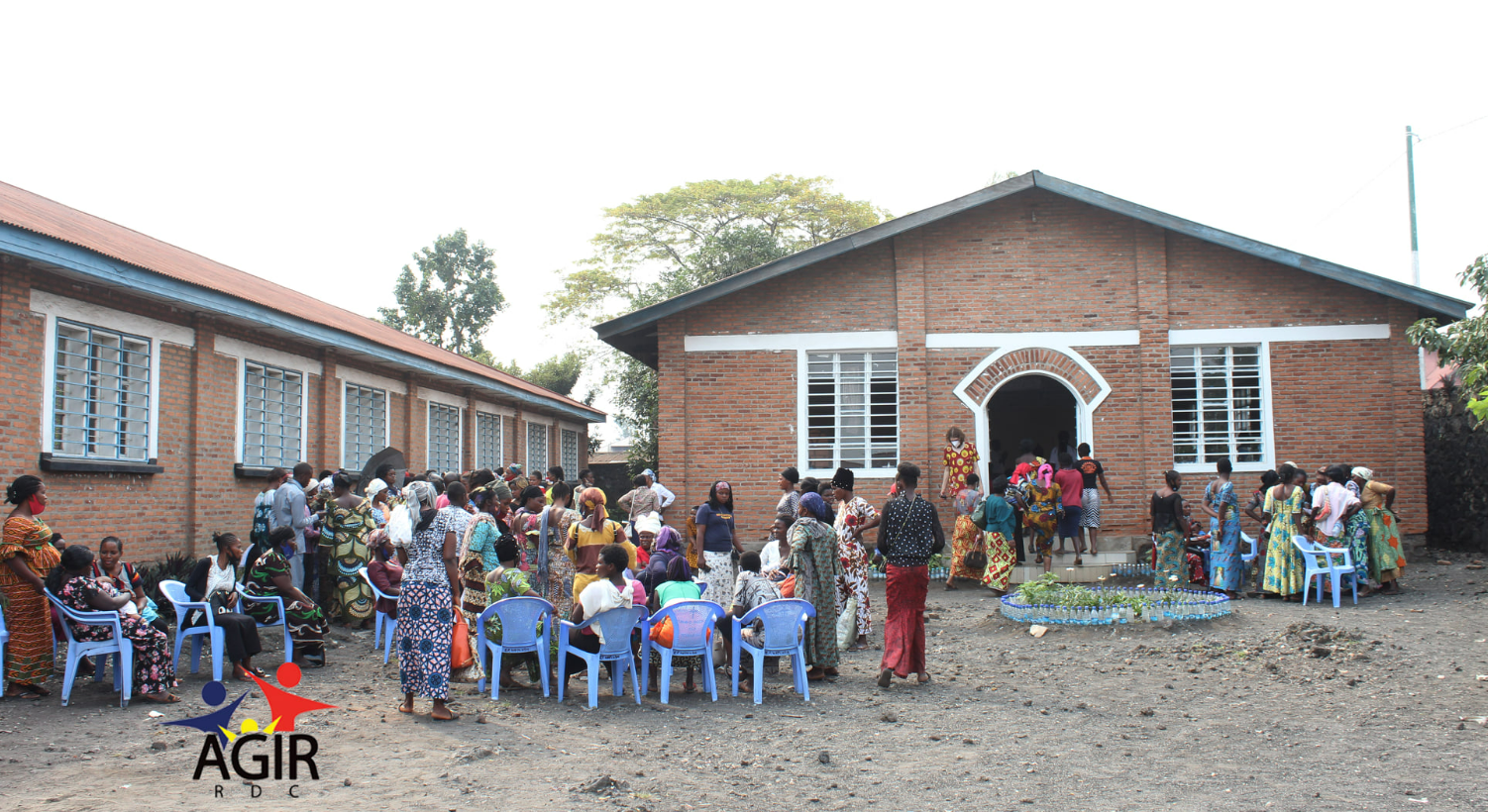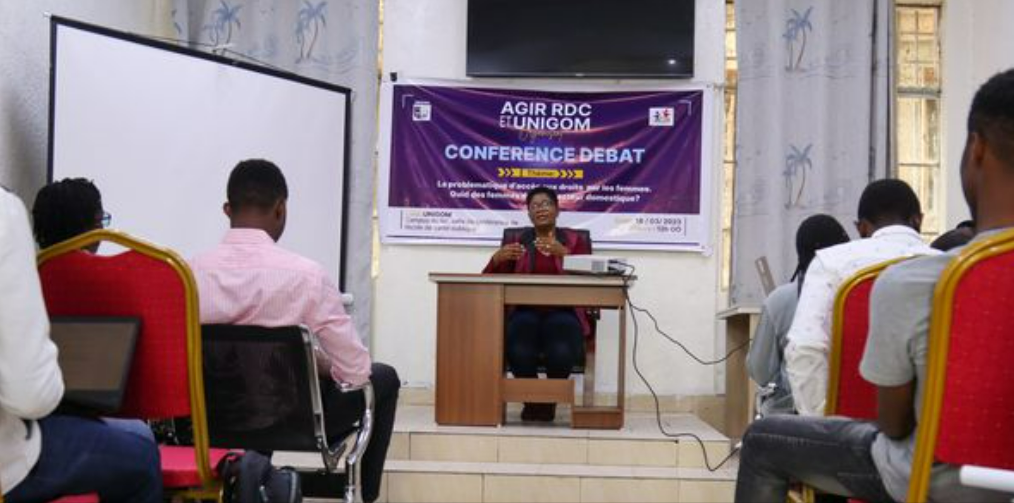AGIR RDC works with and advocates for domestic workers.
During a decade of working with teen mothers, the leaders at AGIR found the singular context that made women most vulnerable was domestic servitude.
Domestic workers have little social or legal recourse. They are forced to do all manner of service, sometimes from dawn until every household member retires at night. Commonly, domestic servants are forced to eat or sleep on the floor away from the household members. They enjoy no social status and often are objects of deep contempt from those they serve. These women are vulnerable to a wide variety of abuses.
Commonly, they get paid very little, irregularly, or not at all.
Modestine Etoy works with students at University of Goma in March, 2023.
A worker often comes from a deeply poor family that cannot provide for her. She might get sent away to work for a sum of money so her parents can feed her siblings. Maybe the parents sent her into servitude for a promise that she will get an education — and doesn’t. She might have been abandoned or estranged.
Domestic workers usually have no written contract. There is an enormous gap between rich and poor people in Goma, and many homes have domestic servants, especially if the household is wealthy or earns a regular income. The workers can be rendered powerless when they suffer injustice. The owner can abuse and cast them aside with impunity. Some are pregnant. Others are battered and traumatized.
AGIR RDC works actively to provide treatment for trauma, access to legal resources, education about workers’ rights, and vocational/business training. They also organize and work to change laws and make them enforceable.
“Women's rights are human rights. We must fight together against the violence inflicted on them.”
— Denis Mukwege, The “Repairer of Women” and co-recipient of the 2018 Nobel Peace Prize.
AGIR RDC brings domestic servants together for training in labor laws and their rights according to the provisions of the Congolese Labor Code.
Our partners at AGIR work to facilitate for and strengthen organizations such as Union des Femmes Domestiques du Congo [UFEDOC] — in English, Union of Domestic Women of Congo.
Together they provide an integrated approach to supporting women so they can exercise and enjoy their rights as domestic workers. They also learn new skills that make them better employees and more competitive.
UFEDOC leaders meet monthly in General Assembly that represents more than 400 members in chapters in Goma and Beni. They work with AGIR to receive training and to build a community of peers with the strength to organize domestic workers so they can defend their rights.
Many women have suffered from physical, emotional, and sexual abuse as domestic workers. Addressing effects of trauma is paramount, so the integrated approach begins there. The members work with therapists and peers. They learn ways to access the legal system. They get training on how to negotiate a contract, run a business, and manage money.
Modestine Etoy, Executive Director of AGIR RDC, works with students at University of Goma. Discussion is the first step to acknowledging a problem, before any change in practice can take place.
University students created an AGIR club where they learn to engage in productive ways and choose career paths that lead to a brighter future in DR Congo.
Students learn and become activists by working with AGIR in the various initiatives.




